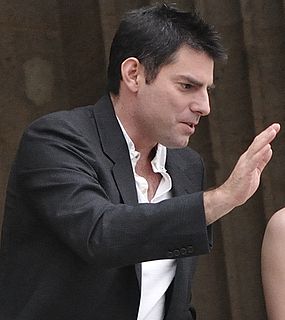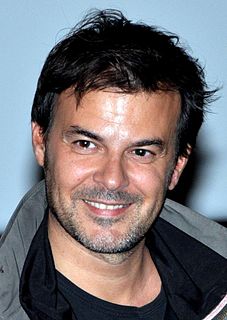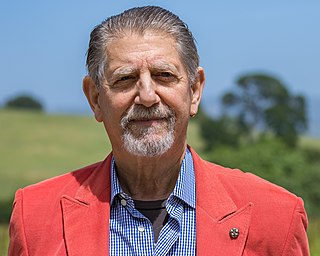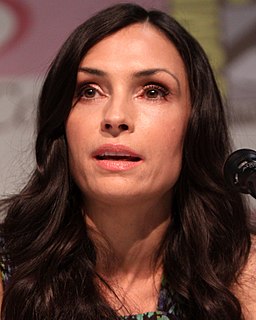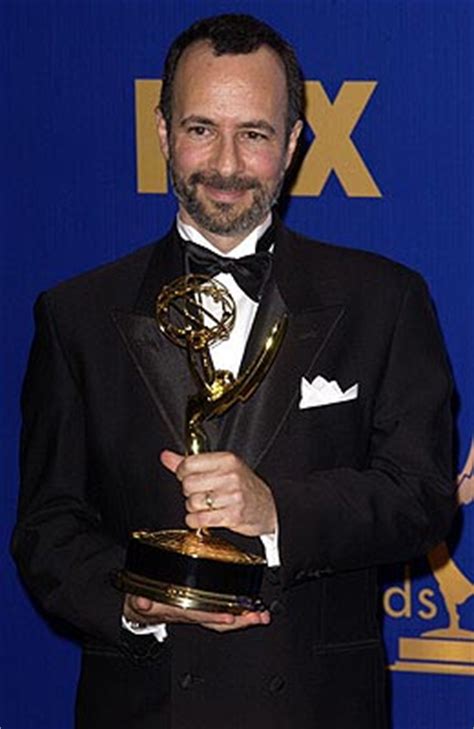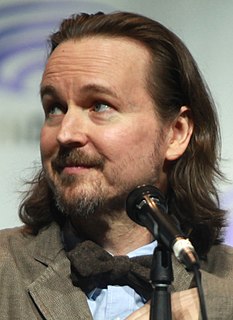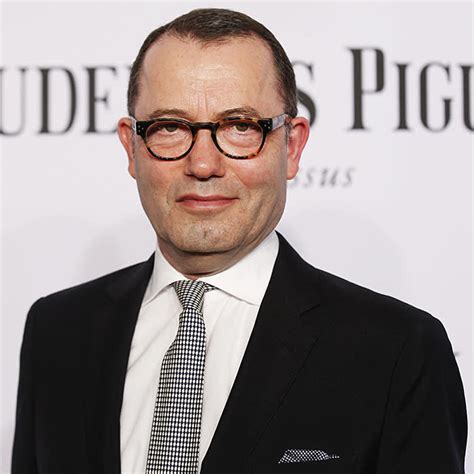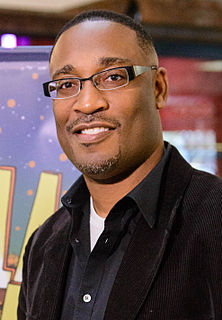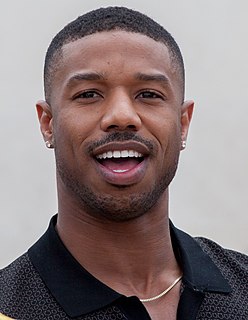A Quote by Chris Weitz
All I can say is that with 'The Golden Compass,' I didn't get to make the movie I had planned to make. When I look at the film, at the casting and certain scenes, I'm very happy. As for the final product, I can't vouch for that.
Related Quotes
Both as a filmmaker and as a fan I love the behind-the-scenes stuff, I like it even more than deleted scenes frankly. Especially when you're happy with the movie and you're proud of it, those deleted scenes give you also a sense of the making of the film and the process through which you end up with the final product.
I didn't want to make Young and Beautiful as very dramatic movie . In a certain way, I wanted to do a girly film. I wanted to make something sweet, pink. With a boy it was too dramatic and too heavy. I had a lot of pleasure with the boys in In the House, I said, "This time I will do a film with girls."
Like every novelist, I fantasise about film. Novelists are not equipped to make a movie, in my opinion. They make their own movie when they write: they're casting, they're dressing the scene, they're working out where the energy of the scene is coming from, and they're also relying tremendously on the creative imagination of the reader.
When critics or people judge, I think it's harder to make a commercial, pop movie than it is to make a pretentious art film. It's harder to reach millions of people and satisfy them and make them happy. These films kind of get ghettoized, this genre because there are so many big, big movies that are such big hits, but aren't any good. The audiences, they're not judging the style of the director, or the execution of the film. They're just looking to be entertained. They want to escape from their reality, and that's why we make movies, to get people to escape from the realities.
There are people on the ratings board and so froth who don't want certain scenes in the film. There are people who come up and say, "What graphic love scenes. I think, How can a love scene be graphic? Have you seen Total Recall? In this R-rated movie you see a man who you've seen being in love with and sleeping with this fabulous woman shoot her right through the head. "Consider this a divorce" is supposed to be the funniest line in the movie.
I had read the scripts that Nora Ephron had written as a movie about Mike McAlary. We were never able to make it at HBO because we couldn't cast it properly and when I left I called Nora and said, "Look, I actually think that the movie luckyguyindustry has changed. It's very unlikely that you'd be able to make this as a movie. I actually think it's a play."
It really has been a blessing because you can go and look at our other movies we've done in a studio system. We didn't get to make the movie that we wanted to make. We made the movie that someone else wanted us to make. That can be a little disheartening, a lot disheartening. While there have been struggles, it doesn't matter which table you're at because you're going to have obstacles, but I kind of like being able to make the movie that you want to make.
Independent film making is very collaborative. You feel like it's you, the director and other actors and you really feel like you have the final say. When you do the bigger films, the studio has to give the final thumbs up and they're usually not big on risk taking because they're trying to make money.
